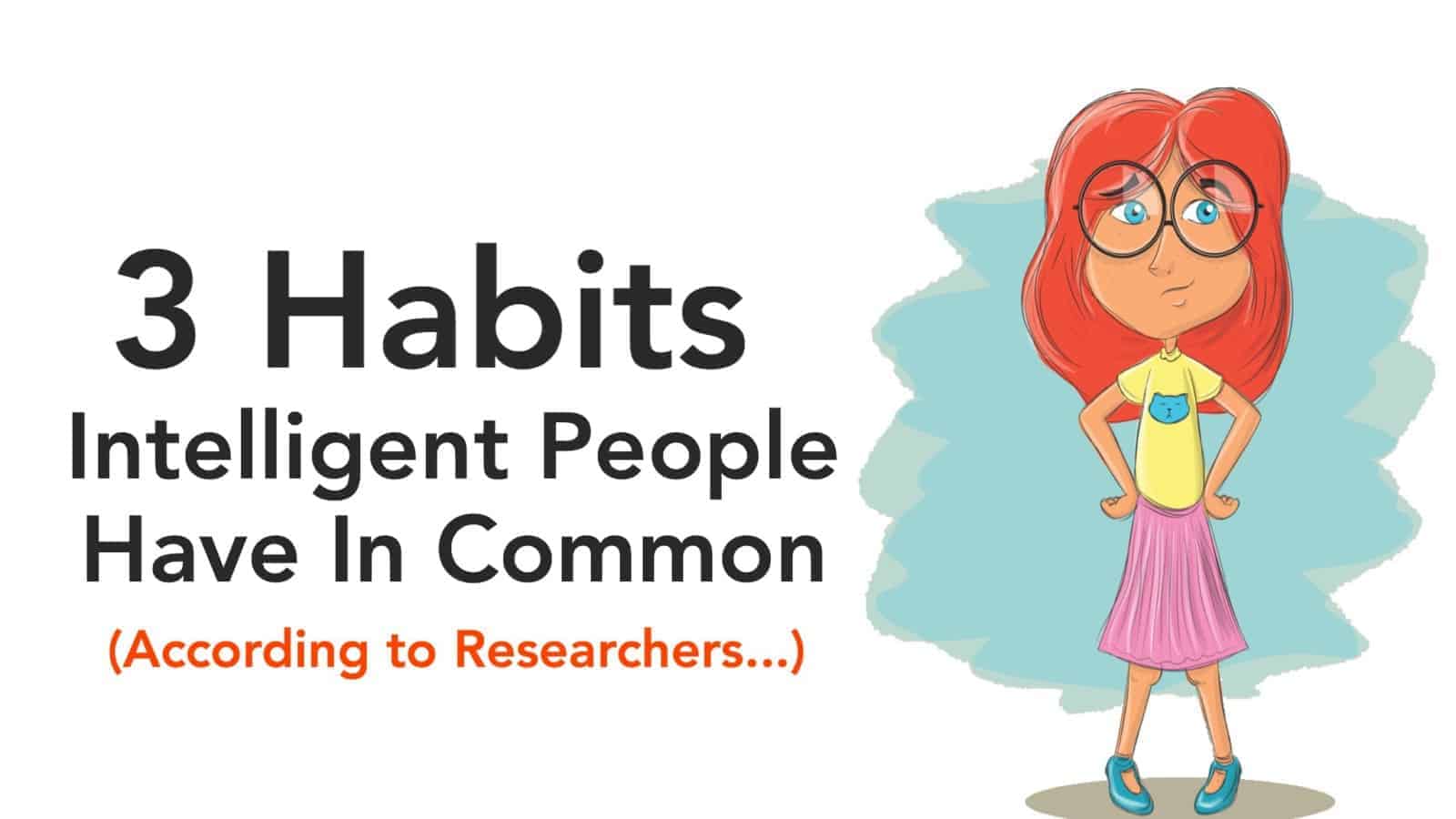Think of two or three people in your life who you consider intelligent. Do they have any unusual quirks about them? If so, what are they? (Please comment! We’d love to hear from you!)
Intelligent people have certain habits in common that may be unorthodox, but it doesn’t stop their brains from working exceedingly well. In fact, multiple studies have shown that people who share these ‘fringe’ traits usually score higher on an IQ test and can intellectually function better than many of their peers.
So what exactly do they do differently? Here are 3 major traits and the science behind them…
3 Habits Intelligent People Have In Common:

1. They’re messy
Albert Einstein once quipped “If a cluttered desk is a sign of a cluttered mind, of what, then, is an empty desk a sign?” Uhm… Burn! (That’s what one gets for egging on a genius…)
Einstein was known for his rather disorderly working space. Reading a bio of Einstein, the book included some photographs of Einstein at work. Piles of paper, no filing system, scattered books, and a contented genius.
There may be a reason that history’s most significant scientist didn’t give a crud (pun intended) about his working space. A 2013 study by professors at the University of Minnesota Carlson School of Management discovered that frantic clutter might be a useful methodology for creative problem-solving.
Einstein, by the way, is not the only brainiac to relish an unkempt work area. J.K. Rowling, author of the Harry Potter series, and the former Roald Dahl, the artist who created characters such as Willy Wonka and Matilda, are famous for their muddled desks.
2. They curse a lot
Hey, don’t swear at the messenger!
Excessive swearing is still interpreted by much of society as an indication of low-level intelligence, limited vocabulary, and disregard for social customs. It turns out that this presumption may be completely false.
Come to think of it; this makes sense. You probably know someone who fits this description yourself.
Joking aside, a study by psychologists from Marist College discovered a relationship between how fluent a person is in English and a flowing harangue of curse words.
How did those folks in the lab reach this admittedly strange conclusion?
Well, they asked volunteers to list off as many unbecoming words as possible in one minute. Participants then received a verbal fluency test and, lo and behold, cursers tended to score higher on both. Verbal acuity, many believe, is one of the greatest benchmarks of intellect.

3. Intelligent people are night owls
The correlation between intelligence and a fondness for burning the midnight oil has been around for a long time. (And does makes a tad more sense than the other two habits.)
Basically, the theory that smarter folks tend to be night owls revolves around the fact that staying up later is original from an evolutionary perspective. Satoshi Kanazawa, a psychologist who has his fair share of loyal critics, provides his explanation:
“There is no indication in any of the (evidence) that any sustained (nighttime) activities occur in traditional societies, other than occasional conversation and singing … It is therefore reasonable to infer that our ancestors (limited) their daily activities to daylight, and sustained nocturnal activities are largely evolutionarily novel.”
Kanazawa presents a childhood intelligence study wherein five groups of participants, categorized as “Very dull,” “Dull,” “Normal,” “Bright,” and “Very Bright,” and their average bedtime is represented graphically via a bar chart.
In the study, children whose IQ registered at or below 75 (“very dull”) went to bed around 11:40. Children whose IQ was recorded at or above 125 (“very bright”) went to bed around 10:30 am.
Hard to imagine readers of Kanazawa’s work being too thrilled with this one.

















